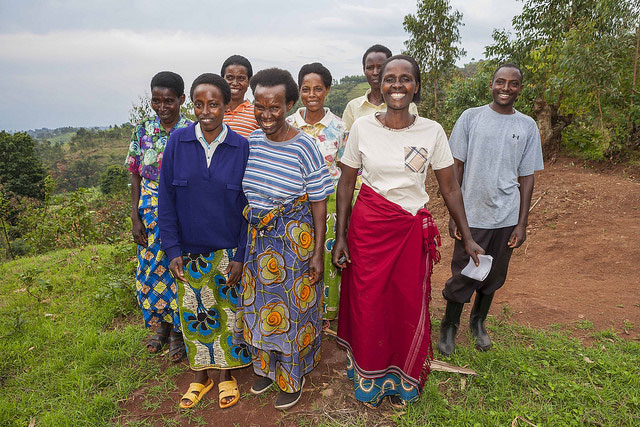Survivors Fund (SURF) works to rebuild the lives of survivors of the genocide against the Tutsi in Rwanda.
Our vision is a world where survivors are respected and integrated.
Based in Kigali, our small team works with several partner organisations to provide support and services to survivors and their dependants.
Our work includes:
- helping survivors and vulnerable people to find long-term work
- supporting successful income-generation projects and entrepreneurship
- helping vulnerable people to access support such as trauma counselling, care of older people and prevention of violence
- providing education for orphaned survivors and children born of rape, with a focus on technical and vocational training
- helping survivor organisations to become financially secure for the long term
- enforcing the rights and legal representation of survivors and vulnerable groups.
And we work under a set of guiding principles:
- SURF’s commitment to survivors & related vulnerable persons is long term.
- SURF is independent in its response to the priorities of survivors & related vulnerable persons.
- SURF builds the capacity of survivor organisations as strong actors in Rwandan civil society.
- SURF supports sustainable activities that are integrated into mainstream planning.
Our programmes are developed and delivered by survivor-led organisations including Association of Widows of the Genocide (AVEGA) and the National Student’s Association of Survivors (AERG) with technical support from Survivors Fund (SURF).
Our partners help us identify which vulnerable groups we should prioritise in our work. And though many of our partners were initially set up by and for survivors of the genocide against the Tutsi, they now help other related vulnerable persons including:
- Children born to women survivors raped during the genocide against the Tutsi
- Children born to survivors of the genocide against the Tutsi after 1995 (second-generation survivors)
- Children infected and affected by HIV and AIDS
- Disabled and older people living in survivor-headed households.
Our priorities for the period 2024 to 2028 are set out in our Strategic Plan.

